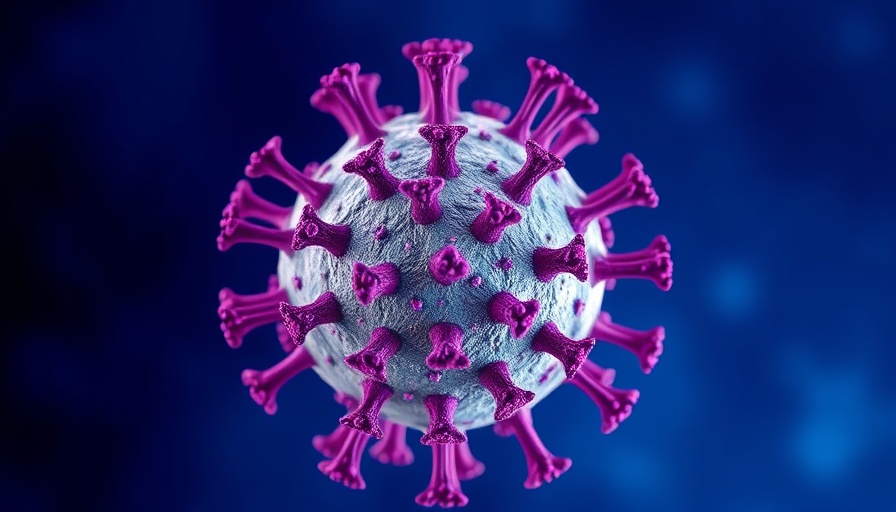
The Lasting Impact of Measles: More Than Just an Infection
Measles is often seen as a childhood illness, a minor inconvenience that brings fever, cough, and a distinctive rash. Yet, behind this seemingly benign façade lies a stark reality. The viral disease carries with it severe long-term health consequences that can affect children for years. Although the U.S. has seen a significant decline in measles thanks to the MMR vaccine, recent outbreaks have underscored the need for awareness and vaccination. Measles isn't just about the immediate symptoms; it's a virus with a hidden trajectory—potentially life-altering.
The Real Risks: Hospitalization and Complications
According to the Centers for Disease Control and Prevention (CDC), about 1 in 5 children infected with measles will require hospitalization, with pneumonia being a frequent outcome. This gives rise to serious questions: Why are these numbers still significant in modern America? If health professionals rarely see measles due to vaccination efforts, what can parents do to ensure their children remain protected?
Healthcare professionals, like infectious disease nurse practitioner Patsy Stinchfield, emphasize the gravity of the situation. After responding to outbreaks, she described the helplessness felt by parents whose children become severely ill from a preventable disease. The reality is, measles can bring kids to the emergency room, causing lingering malaise and complications.
Understanding Immune Amnesia: A Hidden Cost of Infection
One of the most concerning results of a measles infection is a phenomenon known as "immune amnesia." This term refers to the loss of a substantial portion of the body’s immune memory for other diseases. In a study led by geneticist Stephen Elledge, it was found that after being infected with measles, individuals may lose between 11% and 73% of their existing antibodies to previous infections.
This loss doesn't just put children at risk of catching measles again. The consequences are dire; immediately after a measles infection, children are vulnerable to a host of other potentially serious diseases. Recovering their immune defenses can require reinfection with those diseases, an outcome no parent wishes to face.
Defensive Strategies: The Power of Vaccination
The MMR vaccine is our most effective defense against measles, boasting a 97% efficacy rate. The rising incidence of measles in states like Texas highlights the critical importance of maintaining high vaccination rates. Healthcare professionals remind us that vaccinations are not merely about the individual child's health; they protect communities through herd immunity.
By vaccinating against measles, parents not only safeguard their children from the immediate effects of the virus but also shield them from the long-term repercussions. Education, awareness, and proactive vaccination are essential allies in the battle against this disease.
Final Thoughts on Preventing Measles and Its Long-Term Consequences
In conclusion, the fight against measles must continue through consistent and informed vaccination efforts. The ramifications of this seemingly simple viral infection are anything but simple, with potential long-term health issues at stake. For parents worried about their child's health, it is crucial to seek reliable information on vaccinations and stay informed. Understanding the hidden impacts of measles can empower parents to take necessary actions now.
So, take charge of your family's health. Is it time for an appointment to ensure that your child’s vaccinations are up-to-date? Protecting against measles isn’t just a personal decision; it's a public health necessity.
 Add Row
Add Row  Add
Add 




 Add Row
Add Row  Add
Add 

Write A Comment